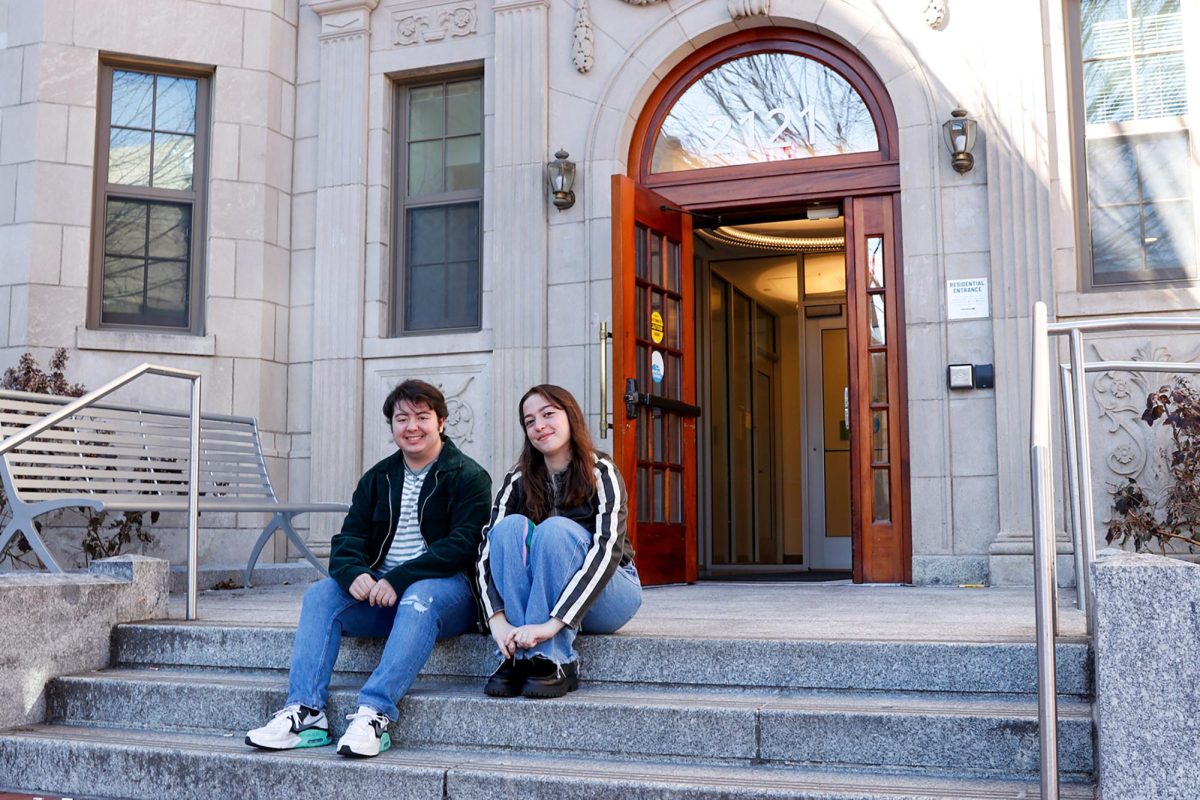Members of the Student Government Association are collaborating with officials to create housing for transgender and nonbinary students in fall 2024.
Director of Campus Living Dan Wright said any returning student who identifies as LGBTQ+ can opt to live in the 16 or 20 person affinity suites in District House for the upcoming academic year. Wright said LGBTQ+ students told Campus Living and Residential Education that they wanted a shared residential community space where their identities could be affirmed, which led officials to work with the SGA to develop the project.
Wright said the CLRE and SGA proposed the development of the LGBTQ+ affinity in the fall when they realized they had similar visions and collaborated to finalize the details of the affinity suite concept. He said they’ve collaborated with other student organizations like Allied in Pride and Transgender and Non-Binary Students of GWU to promote the suite.
“CLRE jointly developed the concept of the LGBTQIA+ affinity with the [SGA], solicited feedback from LGBTQIA+-identifying student organizations, and have been working with those student organizations to promote the affinity suite,” Wright said in an email.
CLRE included questions in the 2024-25 housing registration application that ask the student if they are comfortable living with someone with a different gender identity from their own or an LGBTQ+ gender identity.
SGA President Arielle Geismar said as a member of the LGBTQ+ community she is excited at the prospect of allowing GW students to choose housing choices that better reflect their gender identity and preferences. She said the housing will be open to all LGBTQ+ students who express interest in the program.
“It’s important to me that students feel as though they have housing options that reflect their comfortability level, because housing has historically been assigned by gender,” Geismar said.
Under the current gender-inclusive housing guidelines, students of all gender identities can opt into living together. Gender-inclusive housing — which allows students who identify as different genders or have a different biological sex to live together — is available for all students in all residence halls.
SGA Director of Housing Justin Emgushov said the initiative is “two-pronged,” with the first goal being the addition of affinity housing for transgender and nonbinary students, and the second to overhaul the housing application forms.
“It was very clear that our intentions were aligned with the administration,” Emgushov said. “That made it very easy to work with the administration on this policy proposal.”
He said the SGA hopes to include various accommodations within the affinity housing unit, including a needle disposal container because many transgender and nonbinary individuals use injected hormones and require a place to safely throw away their needles.
Emgushov said the second prong was to overhaul the housing application process beginning in fall 2024 to make housing applications gender-based, rather than the current sex-based system. CLRE officials brought up the idea of changing the housing application during their conversations about implementing the affinity space, Emgushov said.
“A lot of it mostly has to do with making sure that trans people on campus have a space where there are more people like them, that they can feel comfortable in,” Emgushov said.
SGA Deputy Secretary of Student Justice Carson Consiglio spearheaded the initiative and said as a transgender man he experienced issues with finding transgender-affirming housing accommodations “year after year,” which hurt his mental health. He said he and other LGBTQ+ students worry that they will have to live with someone who does not accept or understand their gender or sexual orientation.
Consiglio said a student may tell CLRE staff they are transgender to ensure they are living in an LGBTQ+ friendly space or to make CLRE aware of their use of needles for transition-related medication. CLRE then refers the student to Disability Support Services, even if they don’t have a disability.
He said that last year, DSS put him in an accessible room in Amsterdam Hall, which worried him because he felt he was taking a space away from someone with a disability that requires physical accommodation. He said his housing placement felt like a “rushed solution” because it appeared as if CLRE didn’t know what to do with transgender students, which ultimately motivated him to work with other SGA members to develop transgender-accessible housing.
Consiglio said the University previously offered LGBTQ+ affinity housing but that it was discontinued due to a lack of interested students and overall difficulty finding a space for every student. Consiglio said an affinity housing option for LGBTQ+ students would improve their housing experience because the spaces include private laundry rooms and bathrooms.
“Just ensuring that we have resources and access to, honestly, just housing that would make us feel safe, is something that we’re working on in the coming years that I’m really excited for,” Consiglio said.
Sophomore Thomas Morningstar, the political outreach director of Transgender and Non-Binary Students of GWU, said officials need to ensure the housing is not “one size fits all” and reflects all individuals’ needs.
“So making sure we’re not making it into what often happens [which] is one type of identity gets prioritized because friend groups come in, making sure there is a wide range so that everyone feels included,” Morningstar said.
Morningstar said the lack of identity-affirming housing has hurt many members of the organization in the past because officials assigned housing by biological sex, which does not affirm their gender identities.
“Sometimes you become pigeonholed into a ‘we must do this,’” Morningstar said. “Some people don’t feel comfortable with certain things.”





